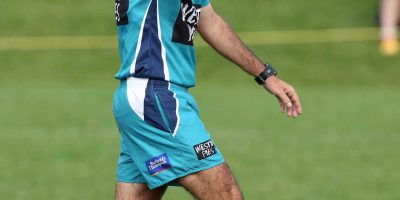Lusaka — The Swazi Bridge news site in Eswatini is facing a record-breaking claim for 170 million emalangeni (US$9.8 million) in damages and the threat of terrorism investigations, as part of a growing global trend of using abusive lawsuits to suppress public interest reporting.
The Farmers Bank and its director John Asfar alleged defamation by the privately owned media outlet in March over its 2023 to 2025 reporting of alleged irregularities in the bank’s acquisition of its license to operate in Eswatini, according to court documents, reviewed by CPJ.
“Farmers Bank’s intimidatory conduct raises concern that this lawsuit is designed to silence journalism that critically probes its operations and to instill fear among others in the media,” said CPJ Africa Program Coordinator Muthoki Mumo. “Authorities in Eswatini must ensure that the courts are not misused as tools to censor public interest reporting.”
On October 15, the bank and Asfar filed an application demanding that The Swazi Bridge take down five stories and desist from publishing about them, according to a court document, reviewed by CPJ. The outlet intends to oppose the application, the publication’s lawyer, Sibusiso Nhlabatsi, told CPJ.
Follow us on WhatsApp | LinkedIn for the latest headlines
He said the damages sought in the case were unprecedented in the southern African nation, an absolute monarchy with a GDP per capita of less than $4,000.
Similar allegations about the bank’s lengthy battle with the regulatory Central Bank to secure a license were published in 2024 as part of the “Swazi Secrets” series of articles, based on a leak from Eswatini’s anti-money laundering agency and coordinated by the International Consortium of Investigative Journalists.
In response to the exposé, politicians focused on finding out the source of the leak, with the finance minister promising to “catch the culprits” behind the leak.
Eswatini’s Minister of Finance Neal Rijkenberg vows to find the source of the leak of some 890,000 Eswatini Financial Intelligence Unit records, which revealed that prominent individuals abused the kingdom’s weak anti-money laundering controls. (Screenshot: The Kingdom Online Network/YouTube)
Bank demands ownership of media outlet
In June, Farmers Bank and Asfar’s lawyers offered to make an out-of-court settlement, which would include transfer of the ownership of The Swazi Bridge to their clients and the retraction of the news reports, including those republished by other media outlets, according to a letter, reviewed by CPJ.
The lawyers warned that the claim would “increase exponentially if your clients continue to archive and defame our clients online” and, as commercial banking was “a matter of National Security,” they intended to “escalate this serious matter of malicious targeting” to authorities as “a violation against the Suppression of Terrorism Act.”
The Swazi Bridge’s editor Manqoba Nxumalo and two of its journalists were also named as defendants, according to legal documents, reviewed by CPJ. They rejected the offer in another letter, reviewed by CPJ.
Manqoba Nxumalo, editor of The Swazi Bridge, discusses the Swazi leaks on his podcast in 2024. (Screenshot: Swazi Bridge/YouTube)
A joint statement by the Southern African Litigation Center (SALC) and the Media Institute of Southern Africa (MISA), a press freedom group, said the case had the “hallmarks” of a Strategic Lawsuit Against Public Participation (SLAPP) and called for urgent legislative reform to safeguard public interest journalism.

Sign up for free AllAfrica Newsletters
Get the latest in African news delivered straight to your inbox
Success!
Almost finished…
We need to confirm your email address.
To complete the process, please follow the instructions in the email we just sent you.
Error!
There was a problem processing your submission. Please try again later.
SLAPPs are abusive lawsuits filed by powerful officials, businesspeople, or corporations against journalists or news outlets to silence critical reporting, using lengthy, costly legal proceedings to prevent further reporting, rather than seeking to address actual wrongs.
Nxumalo told CPJ that The Swazi Bridge was not formally notified of the lawsuit and only found out about it via the media in May.
Eswatini is Africa’s last absolute monarchy and has been ruled since 1986 by King Mswati III, who cracked down hard on pro-democracy demonstrations in 2021, arresting journalists and shutting down the internet to stop protesters organizing via social media. The government controls the broadcast media and self-censorship is routine.
Farmers Bank and lawyers for the bank and Asfar did not respond to CPJ’s requests for comment sent via email and messaging app.
Editor’s note: This text has been updated in the eleventh paragraph to correct the description of MISA.



















